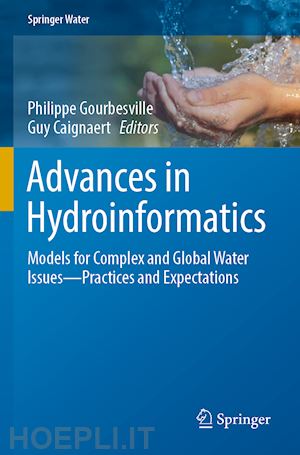This book includes a collection of extended papers based on presentations given during the SIMHYDRO 2021 conference, held in Sophia Antipolis in June 2021 with the support of French Hydrotechnic Society (SHF). It focused on "Models for complex and global water issues—Practices and expectations”. The water field is continuously mobilizing models for addressing complex issues and new challenges. Within the context of the climate change, the water issues are exacerbated with the competition among uses. The limited water resources request from the modern societies to review some of the historical paradigms traditionally used and to promote new approaches for a sustainable management. The combined complexity and vulnerability of large urban environments request a deep understanding of water uses and environmental synergy. At the same time, water-related natural hazards are contentiously straightening modern societies that must adapt and implement a more resilient environment. In parallel, in the industrial sector, the search for a high level of efficiency for hydraulic machinery requests to simulate complex processes. Under all these situations, the models currently used represent only partly the physical phenomena involved, the scale of the processes, the hypothesis included within the different numerical tools, etc. The design and the operation of relevant models represent a challenging task for the modeller who is responsible of the knowledge part of a global system that is dedicated to support the decision makers.
The book explores both the limitations and performance of current models and presents the latest developments based on new numerical schemes, high-performance computing, multi-physics and multi-scales methods, and better interaction with field or scale model data. It addresses the interests of practitioners, stakeholders, researchers, and engineers active in this field.











